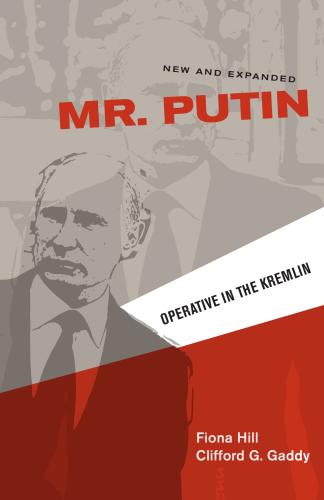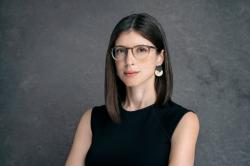In a matter of minutes in Helsinki, and in front of the entire world, the Kremlin won the narrative and Russian President Vladimir Putin strutted out of his joint press conference with President Trump with the glow of victory. This piece by Alina Polyakova originally appeared in the Washington Post.
Russian President Vladimir Putin has officially met with four U.S. presidents, but on Monday he finally got the summit he always wanted. And he didn’t have to say much. He simply let President Trump do the talking for him on key issues, including Ukraine, Crimea, Syria and election interference. In a matter of minutes, and in front of the entire world, the Kremlin won the narrative and Putin strutted out with the glow of victory.
The Russian leader emerged on equal footing with the United States, as Trump never challenged Putin and blamed the decline in relations on both sides, saying “the United States has been foolish. I think we’ve all been foolish. … We’re all to blame.”
In the lead-up to the summit, Trump seemed to open the door to U.S. recognition of the illegal annexation of Crimea (his national security adviser walked it back, but Trump never confirmed). At the Monday news conference, Putin was the only one to mention Ukraine in his opening remarks, placing the blame on Kiev for not implementing the Minsk cease-fire agreement and asking the United States to put more pressure on Ukraine to do so.
Trump did not dispute the Kremlin line that Ukraine was to blame for the ongoing war in its borders. The Trump administration’s own special envoy for Ukraine, Ambassador Kurt Volker, has been pushing against this Russian narrative for more than a year. Just a few days ago, Volker reaffirmed that the conflict in Ukraine’s east is the direct result of Russian invasion and continued occupation of the Donbas. But it was Putin, not Trump, who brought up Crimea. Putin said Trump’s view on Crimea is well known—that he sees the annexation as illegal—whereas Russia disagrees and sees Crimea as a closed issue. Putin said for Trump what Trump was not able to say for himself.
On Syria, there was plenty of speculation that Putin was preparing a deal to offer Trump. In the week before the Helsinki meeting, Putin hosted the Israeli prime minister and advisers to the Iranian supreme leader—seemingly in preparation to offer Russian help in moving Iranian-backed militias away from the Israeli border. No such deal seemed to materialize at the summit (though that may still be a possibility down the road). But even here, Trump let Putin speak for all sides.
While Trump offered no details of a potential Syria deal in response to journalists’ questions—if only to remark that Israeli security is important and that they should do “something to help the people of Syria”—Putin took the reins to offer his vision: Russia would seek to work together with the United States, France, Turkey and Iran to ensure better protection for refugees and work toward an end to Syria’s humanitarian crisis. Russia, in other words, is the only country that can bring these disparate states together to work toward a humanitarian solution. This is where Putin had his best moment to bask in how far he’d come, from a mid-level KGB officer to a global statesman, floating above petty politics to solve geopolitical crises. Never mind that Russia likely has little will and even less intent to enforce any such agreement—as the Obama administration also learned when trying to negotiate a Syria deal with Russia. To quote the writer Peter Pomerantsev, “Nothing is true and everything is possible.”
Trump had many opportunities to counter the Russian president but chose not to take them. Instead, the president confirmed the Russian disinformation narrative that the United States is to blame for the nadir in relations. If Trump gained anything at the summit, we don’t know what it is (other than a shiny new soccer ball). Putin, however, got exactly what he wanted.
The Brookings Institution is committed to quality, independence, and impact.
We are supported by a diverse array of funders. In line with our values and policies, each Brookings publication represents the sole views of its author(s).






Commentary
Putin didn’t have to push the Kremlin’s narrative. Trump did it for him.
July 20, 2018